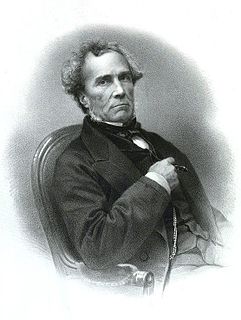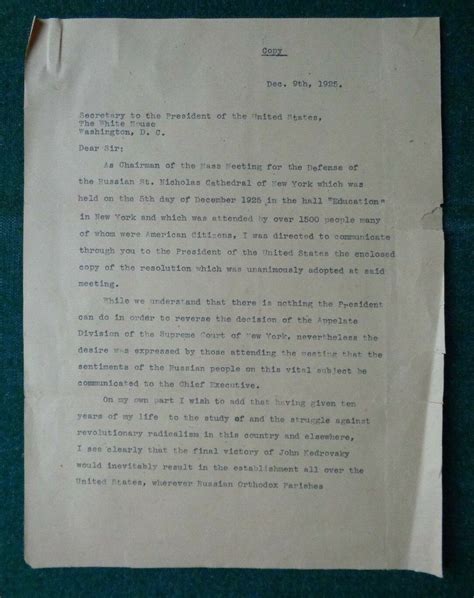Top 698 Interior Quotes & Sayings - Page 12
Explore popular Interior quotes.
Last updated on April 19, 2025.
Until we can insert a USB into our ear and download our thoughts, drawing remains the best way of getting visual information on to the page. I draw as a collagist, juxtaposing images and styles of mark-making from many sources. The world I draw is the interior landscape of my own personal obsessions and of cultures I have absorbed and adapted, from Latvian folk art to Japanese screens. I lasso thoughts with a pen. I draw a stave church or someone from Hello! magazine not because I want to replicate how they look, but because of the meaning they bring to the work.
To be one of God's lilies means an interior abandonment of the rarest kind. It means that we are to be infinitely passive, and yet infinitely active also; passive as regards self and its workings, active as regards attention and response to God. It is very hard to explain this so as to be understood But it means that we must lay down all the activity of the creature, as such, and must let only the activities of God work in us, and through us, and by us. Self must step aside, to let God work.
I'm an indoors person. I'm not afraid of the outdoors and I penetrate it easily and cheerfully. However, I must admit I like Central Park better than the wilderness, and I like the canyons of Manhattan better than Central Park, and I like the interior of my apartment better than the canyons of Manhattan, and I like my two rooms better with the shades down at all times than with the shades up. I'm not an agoraphobe at all, but I am a claustrophile, if you see the distinction.
Complaints about the social irresponsibility of the intellectual typically concern the intellectual's tendency to marginalize herself, to move out from one community by interior identification of herself with some other community - for example, another country or historical period... It is not clear that those who thus marginalize themselves can be criticized for social irresponsibility. One cannot be irresponsible toward a community of which one does not think of oneself as a member. Otherwise runaway slaves and tunnelers under the Berlin Wall would be irresponsible.
She saw herself riding in the passenger seat, Sam behind the wheel. Like two of those little peg people in a toy car. Husband peg, wife peg, side by side. Facing the road and not looking at each other; for why would they need to, really, having gone beyond the visible surface long ago. No hope of admiring gazes anymore, no chance of unremitting adoration. Nothing left to show but their plain, true, homely, interior selves, which were actually much richer anyhow.
I learned capacity for self-reflection very early, finding it through interior monologues that books are so good at and that visual media is so bad at because it's so boring - nothing's happening. In a book, you can be inside the narrator's head for 50 pages, and nothing needs to happen. Then you learn to be inside your own head without something needing to happen. It's a very good antidote to a crazy, restless, "what's next?" culture - that you can just be in your own head and nothing is happening except that this is a rich place. I love that.
After a time I found that I could almost listen to the silence, which had a dimension all of its own. I started to attend to its strange and beautiful texture, which of course, it was impossible to express in words. I discovered that I felt at home and alive in the silence, which compelled me to enter my interior world and around there. Without the distraction of constant conversation, the words on the page began to speak directly to my inner self. They were no long expressing ideas that were simply interesting intellectually, but were talking directly to my own yearning and perplexity.
A lot of the medical imagery has to do with my own biography. I had open heart surgery, I had knee replacements, I had a hiatal hernia, etc. Every time you go for surgery, you get a whole spectrum of imaging. Of course, I've been doing research in imaging technology across the board for close to twenty years. When you think about it, medical imaging is actually quite new. The first major medical image was the x-ray in 1895. That was the first time you got imaging of anything that's in the bodily interior.
What good is it to continue to focus on the exterior technological wonders before us - from indefinite life extension to computer/mind interlinks to unlimited zero-point energy to worm-hole intergalactic space travel - if all we carry with us is an egocentric red-mem Nazis and KKK? Do we really want Jack the Ripper living 400 years, zipping around the country in his hypercar, unleashing misogynistic nanorobots? Exterior developments are clearly a concern; how much more so are interior developments - or lack there of.
She lived almost fifty years of her life completely dedicated to the care of the poor and the marginalized. Astonishingly, for those nearly fifty years she identified completely with the poor she served by her own experience of being seemingly unwanted and unloved by God. In a mystical way — through this painful interior "darkness" — she tasted their greatest poverty of being "unwanted, unloved, and uncared for."
Mystics knew how to channel grace through prayer and they knew the power of that. They knew how to receive guidance through reflection and contemplation; they knew how to share the gift of illumination with each other. These are great gifts of life and profound grace that we are capable of providing for each other and the world. This is what it means to be a mystic without a monastery. You make a commitment to your own interior illumination and through that discover the "sacred" part of your "contract" and the true meaning of your highest potential.
I don't think that there's a target audience at all. These stories were in circulation. The stories were told by men, told in the marketplace by men, but also behind doors by women, but there's no real record of this. It's likely they were told by women to children in their interior rooms. The story could be a negative story, they could be presented as a, "Watch out! Women will get round you, do things to you, weave you in their toils." It could be buried in it an old cautionary story about women and their wiles.
Mother Mary of Anabolic Grace, we got Teras incoming?” He levels angry blue eyes on me. “You’re a hex, lady, dark luck, powerful bad juju, ken?” “Only to people who try to kidnap me,” I tell him sweetly, and March snorts, so I feel obliged to add, “Or rescue me…” And then Dina makes a pfft sound. “Or who travel with me…” My gaze sweeps around the darkened interior, trying to find an ally, but nobody will hold my eyes more than two seconds, it seems. “Fine, frag you all, I’m dark juju, bad luck, and you’re all doomed.
It does seem to me, that herein we see the rare virtue of a strong individual vitality, and the rare virtue of thick walls, and the rare virtue of interior spaciousness. Oh, man! admire and model thyself after the whale! Do thou, too, remain warm among ice. Do thou, too, live in this world without being of it. Be cool at the equator; keep thy blood fluid at the Pole. Like the great dome of St. Peter's, and like the great whale, retain, O man! in all seasons a temperature of thine own.
Our thought should not merely be an answer to what someone else has just said. Or what someone else might have said. Our interior world must be more than an echo of the words of someone else. There is no point in being a moon to somebody else's sun, still less is there any justification for our being moons of one another, and hence darkness to one another, not one of us being a true sun.
Which is more worthwhile earning: a large fortune or the esteem and gratitude of the nation? This question is prompted anew by the death of ex-Secretary of the Interior [Franklin K.] Lane. He remained in public service, doing most noble work, until his means became absolutely exhausted, and he died before having had the opportunity to reaccumulate any bank account.... He died leaving no estate whatsoever. Is what he did leave more to be desired, more to be coveted, than a fortune reaching into six or seven figures?
Alexander's achievement was not the conquest of India, but the feat of actually getting there and his two years in India were more of a geographical expedition than a military campaign. .... a Greek army had reached what they regarded as the end of the earth. They had pitted themselves against the ultimate as bravely as the yogins had struggled to break through the limits of the human psyche. Where mystics had conquered interior space, Alexander explored the farthest reaches of the physical world. .... like many of the axial sages, he was constantly 'straining after more'.
My heart breaks living in southern Utah on the edge of America's Redrock Wilderness, witnessing what the Bush Administration's policies regarding oil and gas exploitation are doing to our public lands that belong to all Americans. Their policy is not about the public or the public's best interest. It is about the oil and gas corporations' best interests. The Secretary of the Interior is urging the Bureau of Land Management to support the gas and oil industry's most extreme drilling scenario in some of the American West's most pristine and fragile areas without proper legal and public input.
Freedom is a need of the soul, and nothing else. It is in striving toward God that the soul strives continually after a condition of freedom. God alone is the inciter and guarantor of freedom. He is the only guarantor. External freedom is only an aspect of interior freedom. Political freedom, as the Western world has known it, is only a political reading of the Bible. Religion and freedom are indivisible. Without freedom the soul dies. Without the soul there is no justification for freedom. Necessity is the only ultimate justification known to the mind.
There are countries in which public establishments are considered by the government as its own personal affair, so that it admits persons to them only according to its pleasure, just as a proprietor refuses at his pleasure admission into his house; they are a sort of administrative sanctuaries, into which no profane person can penetrate. These establishments, on the contrary, in the United States, are considered as belonging to all. The prisons are open to everyone who chooses to inspect them ad every visiter may inform himself of the order which regulates the interior.
For me, architects and film directors operate similarly. They are practical. As an architect, you know what you want in the conception of a space - but you still need a lot of people to help you out. You need an engineer, interior architects. But a film is the same - you have all these elements. But in terms of concept, it's always about time. When you approach a building, you need time to go from point A to B. Buildings are designed as a journey and films are the same, you have an opening that you come through, an angle you follow, maybe a disruption in space.
When I immersed myself in prayer and united myself with all the Masses that were being celebrated all over the world at that time, I implored God, for the sake of all these Holy Masses, to have mercy on the world and especially on poor sinners who were dying at that moment. At the same instant, I received an interior answer from God that a thousand souls had received grace through the prayerful mediation I had offered to God. We do not know the number of souls that is ours to save through our prayers and sacrifices; therefore, let us always pray for sinners.
Rather let us imagine the anima mundi as that particular soul-spark, that seminal image, which offers itself through each thing in its visible form. Then anima mundi indicates the animated possibilities presented by each new event as it is, its sensuous presentation as a face bespeaking its interior image - in short, its availability to imagination, its presence as psychic reality. Not only animals and plants ensouled as in the Romantic vision, but soul is given with each thing, God-given things of nature and man-made things of the street.
By focusing on the interior of a speaker's larynx and using infrared, he was able to convert the visible vibrations of the vocal cords into sound of fair quality, but that did not satisfy him. He worked for a while on vibrations picked up from panes of glass in windows and on framed pictures, and he experimented briefly with the diaphragms in speaker systems, intercoms and telephones. He kept on into October without stopping, and finally achieved a device that would give tinny but recognizable sound from any vibrating surface - a wall, a floor, even the speaker's own cheek or forehead.
Go back to bed', said the omniscient interior voice, because you don't need to know the final answer right now, at three o'clock in the morning on the Thursday in November. 'Go back to bed', because I love you. 'Go back to bed', beacause the only thing you need to do for now is get some rest and take good care of yourself until you do know the answer.
My parents used to park us kids at the public library in downtown Honolulu every Saturday. They'd leave us there at 8 A.M. and pick us up at 4 P.M. - so between those hours, you'd better find something to do! I sat upstairs in the picture room and went through opera, ballet, and theater books. I loved the photographs of people wearing elaborate makeup and costumes - they really pulled at me inside. I was in that library every week for years, until I was about 13. I had a rich interior life, because I didn't have much of a social life.
Gaia's main problems are not industrialization, ozone depletion, overpopulation, or resource depletion. Gaia's main problem is the lack of mutual understanding and mutual agreement in the noosphere about how to proceed with those problems. We cannot rein in industry if we cannot reach mutual understanding and mutual agreement based on a worldcentric moral perspective concerning the global commons. And we reach the worldcentric moral perspective through a difficult and laborious process of interior growth and transcendence.
The tongue is a small member, but it does big things. A religious who does not keep silence will never attain holiness; that is, she will never become a saint. Let her not delude herself - unless it is the Spirit of God who is speaking through her, for then she must not keep silent. But, in order to hear the voice of God, one has to have silence in one's soul and to keep silence; not a gloomy silence but an interior silence; that is to say, recollection in God.
Over the last 10 years, there have been so many incredible albums created in bedrooms by people who never would've gotten an album deal. People keep thinking of professional music studios like they've always been this way for hundreds of years, but they're very much a child of the 70s. Even the interior is very 70s. Everything's brown and it's wood - somebody told me the wood panels are all by the same company. We're always mourning things that have died. It's a bit much sometimes. These studios have no fresh air, and there's this unwritten rule that they don't have windows, either.
In 1879 the Bengali scholar S.M. Tagore compiled a more extensive list of ruby colors from the Purana sacred texts: ‘like the China rose, like blood, like the seeds of the pomegranate, like red lead, like the red lotus, like saffron, like the resin of certain trees, like the eyes of the Greek partridge or the Indian crane…and like the interior of the half-blown water lily.’ With so many gorgeous descriptive possibilities it is curious that in English the two ancient names for rubies have come to sound incredibly ugly.
To read 'Happy Talk' is to crash a party as vivid and surreal as Felini's 8. It's the business of show business, the American dream, told by a chorus of Americans locked just outside of that dream, outside of the United States, relegated to expatriate status on the shores of Haiti. Melo paints a version of Haiti that's an interior landscape perhaps even more than an externalized place. This Haiti is a plan, a memory, a morphine-drip fueled dream out to bond its inhabitants forever.
Writing is mysterious, and it's supposed to be...any path that gets you there is a good path in the end. But one true thing among all these paths is the need to tap a deep vein of connection between our own uncontrollable interior preoccupations and what we're most concerned about in the world around us. We write in response to that world; we write in response to what we read and learn; and in the end we write out of our deepest selves, the live, breathing, bleeding place where the picture forms, and where it all begins.
The full history of the interlocking participation of the Imperial German Government and international finance in the destruction of the Russian Empire is not yet written...It is not a mere coincidence that at the notorious meeting held at Stockholm in 1916, between the former Russian Minister of the Interior, Protopopoff, and the German Agents, the German Foreign Office was represented by Mr. Warburg, whose two brothers were members of the international banking firm, Kuhn, Loeb and Company, of which the late Mr. Jacob Schiff was a senior member.
Because so many poets have chosen a political idiom right now in the US and so many poets have assigned value and inherent knowledge to their racial identity and used that as a form of argumentation, I'm thinking now's a good time to buy low for my own poems and write poems that are deeply in the interior and the psyche. There are plenty of people out there working on subjects of political poetry, partisan poetry, all the way through to crossing the threshold of propaganda. I start thinking now's a good time for me to start writing about the myths of my own psyche.
Many statements about God are confidently made by theologians on grounds that today at least sound specious. Thomas Aquinas claimed to prove that God cannot make another God, or commit suicide, or make a man without a soul, or even make a triangle whose interior angles do not equal 180 degrees. But Bolyai and Lobachevsky were able to accomplish this last feat (on a curved surface) in the nineteenth century, and they were not even approximately gods.
The power of a text when it is read is different from the power it has when it is copied out. Only the copied text thus commands the soul of him who is occupied with it, whereas the mere reader never discovers the new aspects of his inner self that are opened by the text, that road cut through the interior jungle forever closing behind it: because the reader follows the movement of his mind in the free flight of day-dreaming, whereas the copier submits it to command.
I remember asking myself one night, while I was curled up in the same old corner of my same old couch in tears yet again over the same old repetition of sorrowful thoughts, 'Is there ANYTHING about this scene you can change, Liz?' And all I could think to do was stand up, whle still sobbing, and try to balance on one foot in the middle of the living room. Just to prove that - while I couldn't stop the tears or change my dismal interior dialogue - I was not yet totally out of control: at least I could cry hysterically while balanced on one foot.

































